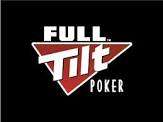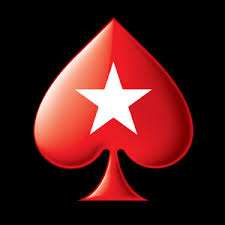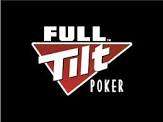Illinois Judge Dismisses Class-Action Lawsuits Against PokerStars, Full Tilt
In a matching pair of legal decisions handed down by Southern District of Illinois judge David R. Herndon on Tuesday, nearly identical class-action lawsuits against PokerStars, Full Tilt, the pre-2011 parent companies of those sites, and a handful of members of the old Team Full Tilt, have been dismissed.
 Attorney Bill Niehoff of the Belleville, IL (near St. Louis, MO) legal firm of Mathis, Marifian & Richter, represented PokerStars and Full Tilt against the class-action suit brought against the former US-facing sites.
Attorney Bill Niehoff of the Belleville, IL (near St. Louis, MO) legal firm of Mathis, Marifian & Richter, represented PokerStars and Full Tilt against the class-action suit brought against the former US-facing sites.
The lawsuits filed on behalf of two (later four) plaintiffs, sought to extract millions in trebled damages under the terms of the antiquated, 19th-century Illinois Loss Recovery Act (LRA), an anti-gambling statute that allowed third parties to sue for recovery of illigal gambling losses on behalf of other primary losers, given that the primary loser doesn’t file his own claim within six months of the illegal gambling activity.
In siding with PokerStars and Full Tilt, however, Judge Herndon agreed with the defendants on several different points, most notably by confirming that Stars and Tilt weren’t the “winners” in the poker games in question. Instead, the sites served as third-party service providers for a fixed fee, the rake charged at the tables.
Wrote Herndon, citing an application of the law from a case way back in 1894, Ranney v. Flinn:
“It is the winner, not the keeper of the house, who is liable to respond to the loser, or if he does not sue within six months, to whoever may sue.”
Judge Herndon further clarified that rake charged does not equal “winnings,” writing approximately the same text within both recent decisions. According to Herndon, as taken from the PokerStars-related case:
“Defendants [] argue that the assertion that they derived profits from collecting commissions in the form of ‘rake’ or ‘take’ is not probative of whether defendants can be construed to be ‘winners.’ Plaintiffs counter that they have adequately alleged that defendants are winners in that the second amended complaint alleges that defendants won money directly from Illinois gamblers in the form of a ‘rake’ from the games. Specifically, plaintiffs allege ‘[t]he Defendants, acting in concert, won money from Illinois gamblers by taking a percentage of the amount bet, won or lost as the ‘rake,’ ‘take out,’ or commission for hosting the games.’ [citation] The Court agrees with defendants and finds that the plaintiffs have not alleged winners sufficiently to withstand the motion to dismiss.”
Previously, the plaintiffs had seen a part of their case against PokerStars dismissed for lack of cause, and were ordered to file an amended complaint that met the needs of the LRA. At the same time, the plaintiffs in the Full Tilt case were given leave to file an amended complaint in an attempt to address the same legal shortcomings.
Judge Herndon, however, wrote in the decisions for both cases that the revised complaints still failed to meet the needed legal thresholds, including failing to cite any specific “winning players” and dates on which the alleged losses occurred.
 Instead, a bombastic and general claim as made in first amended complaint in both cases illustrated the filing attorney’s intended reach, before being dealt with with finality in this week’s decisions. As referred to by Herndon:
Instead, a bombastic and general claim as made in first amended complaint in both cases illustrated the filing attorney’s intended reach, before being dealt with with finality in this week’s decisions. As referred to by Herndon:
“That complaint purported to be a class action for ‘hundreds of thousands – possibly millions – of Illinois poker players who lost money to PokerStars and whose close relatives are entitled to tripled recovery of said losses in accordance with 720 ILCS 5/28-8.'”
The two cases filed against Stars and Tilt were Kelly Sonnenberg v. Isai Scheinberg, et. al. (the PokerStars case) and Judy Fahrner v. Ray Bitar, et. al. (the Full Tilt case). Both individual and corporate defendants were named in both cases, including Black Friday PokerStars co-defendants (along with Scheinberg) Nelson Burtnick and P.T. On the Full Tilt side, that attempted class action also named several prominent members of the old Team Full Tilt, including Howard Lederer, Jennifer Harmon-Traniello and Erik Seidel.
Secondary plaintiffs, relatives to the original plaintiffs, were added in 2014 in an attempt to make the case pass muster. Kelly Sonnenberg’s son Casey was added to the Stars complaint; Casey actually played on Stars before Black Friday, but never submitted claims of specific losses in connection with the case. Similarly, co-plaintiff Daniel Farhner was added after the fact in the Full Tilt-targeting case.
In any event, Judge Herndon ruled that the cases would have had to have been filed within six months of 2011’s Black Friday, the last possible date on which any of the plaintiffs could have played on the former US-facing site. Since the Full Tilt action was filed in July of 2012 and the Stars action a month later (both cases were removed in 2013 to Herndon’s court), he ruled that any claims, even if legitimate on all other grounds, were automatically time-barred.
The twin decisions represent another failure by Illinois class-action attorneys to extract large settlements from online firms based on the 19th-century, third-party recovery law. Another Illinois attorney, Chris Langone, lost similar actions based on the LRA that he had brought against daily fantasy sports sites FanDuel and DraftDay.
Gaming attorney A. Jeff Ifrah, who represented PokerStars and Full Tilt’s interests in the poker-related cases, issued a self-congratulatory presser regarding the decisions. Said Ifrah, “This is a major victory for PokerStars and instructive for other online gaming providers facing similar attacks from plaintiffs seeking unjust windfalls. Through three amended filings by the plaintiffs—alleging many new claims—we clearly proved that the plaintiffs’ cases lacked any merit.”




















COMMENTS